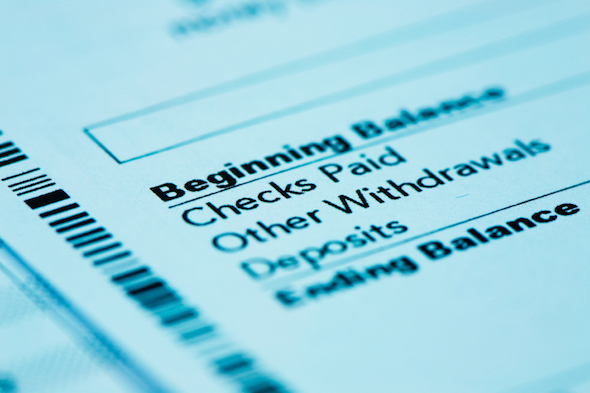Heading off to college your first time can create a lot of excitement and worry. There are a lot of things to do before you start classes. For example, if you haven’t done it already, opening a student bank account should be at the top of your freshman financial to-do list. Understanding the basics of how these student accounts work can help you make the best choice when it comes to deciding where to put your money.
If you’re a parent trying to help your child prepare financially for their adult life, consider working with a financial advisor.
What Types of Bank Accounts Do Students Need?
Depending on what you need, you can set up a checking account, savings account or one of each. If you’re planning to use a debit card for making purchases or write checks to pay bills, you’ll want to go with a checking account that’s designed just for students. Student checking accounts tend to have fewer fees than a regular checking account (many these days are even free) and you generally don’t have to worry about maintaining a set balance each month.
Linking a savings account to your student checking account is a smart move if you want to stash away extra cash for a big purchase or just have a little cushion in case of emergencies. Even if you’re only setting aside $5 or $10 a week, it’ll add up over time, and you’ll even earn a little interest on the money you’re saving.
You can even set up your account to have money automatically transferred from your checking to your savings, or you can use your savings account for overdraft protection. Just keep in mind that you’re likely limited as to how many withdrawals you can make from a savings account each month.
How to Pick the Right Bank

When it comes to choosing which bank to open a student account with, there are several things to keep in mind. First, you want to pay attention to the fees the bank charges. For example, some banks charge a monthly maintenance fee just for having an account, regardless of what your balance is. Other banks charge a fee if your balance falls below a certain limit. It may be a good idea to look for banks that don’t charge these fees. Ally Bank and Capital One are just two examples that don’t charge maintenance fees or minimum balance fees for their savings accounts.
You also need to keep an eye out for smaller fees, which can eat away at your balance little by little. If you try to spend more money than you have in your account, you could get hit with an overdraft fee of $30 or more. Hitting the ATM a few times a week may not seem like a big deal. But if you’re paying a service fee every time you make a withdrawal, you’re essentially throwing money away.
One other thing you want to look for when choosing a bank is accessibility. Credit unions and local banks, such as Northpointe Bank and Dime Community Bank, offer great deals, but they’re limited to one geographic area. This can be a major inconvenience if you need to visit a branch in person. Ideally, you should try to find a bank that has ATM or branch locations in your hometown and near campus. This way you’ll always have convenient access to your money.
How to Make the Most of Your Student Bank Account
Managing your student bank account might not seem like a top priority when you’re busy with classes, a job and campus activities. But staying on top of your money can help you avoid fees and develop your money management skills. Many banks include free tools that make it easier to manage your account. Be sure to take advantage of these features to keep your account in good standing.
Look for banks that offer online and mobile banking so you can check your balance anytime, pay bills and transfer money without visiting a branch. These services let you track your spending and help you avoid overdrafts or late payments. Some banks also let you set up automatic transfers from checking to savings, helping you effortlessly build an emergency fund.
It’s also smart to set up account alerts. Many banks let you get free email or text notifications when your balance is low, a payment is due or a large withdrawal posts to your account. These alerts can help you avoid overdraft fees, spot unauthorized transactions and stay aware of your spending. These tools can help make it much easier to manage your money and avoid costly mistakes while you’re in school.
How to Avoid Mistakes With Your Student Bank Account
Common mistakes with your student bank account can be avoided by staying on top of your balance and transaction history. Many students forget to check their accounts regularly, which can lead to overdraft fees or missed payments. Using online or mobile banking to monitor your account activity makes it easier to spot problems early. Setting up automatic alerts for low balances or upcoming payments is another useful way to stay informed.
Another common issue is overlooking account fees or requirements. Some student accounts waive fees only if you meet certain conditions, like maintaining a minimum balance or setting up direct deposit. If you don’t meet those conditions, you could end up paying unnecessary monthly fees. Take time to read your account’s terms and ask questions about any fees you don’t understand.
Security is also key when managing a student bank account. Avoid using public Wi-Fi to access your account and never share your PIN or password with others. Make sure to create strong, unique passwords and update them regularly. Being cautious about where and how you access your account can help protect your money from fraud or unauthorized charges.
Bottom Line

Opening your first bank account is a major financial milestone and it pays to do your research beforehand. Comparing all of your banking options ensures that you get the most bang for your buck in the long run. This is an important skill that your student should learn and prepare for to help set them up for not only their first year of college but for the rest of their adult life.
Tips for Banking
- If you’re trying to help your student better prepare financially for college and their future, consider working with a financial advisor. These advisors can help you properly plan and set the right funds aside for school. Finding a financial advisor doesn’t have to be hard. SmartAsset’s free tool matches you with vetted financial advisors who serve your area. You can have a free introductory call with your advisor matches to decide which one you feel is right for you. If you’re ready to find an advisor who can help you achieve your financial goals, get started now.
- As you help your student plan for school, costs are probably going to be one of the most difficult aspects. Try using SmartAsset’s free college costs calculator to determine how much college may cost.
Source: Consumer Financial Protection Bureau: Student Banking: Managing Your College Money
Photo Credit: © iStock.com/Chris Bernard Photography Inc., © iStock.com/YinYang, © iStock.com/LPETTET
